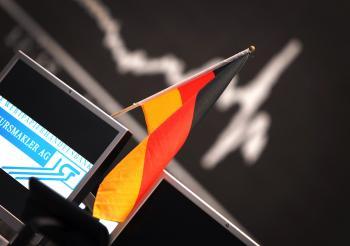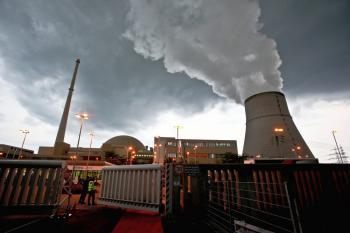German Economy Recovering Faster Than Expected
The German economy is recovering much faster than experts expected and is the faster growth within the European Union.

A board displaying Germany's share index DAX at the stock exchange in Frankfurt/Main, central Germany on July 2.The German economy is recovering much faster than experts expected and is the fastest growth within the European Union. Daniel Roland/Getty Images
|Updated:




